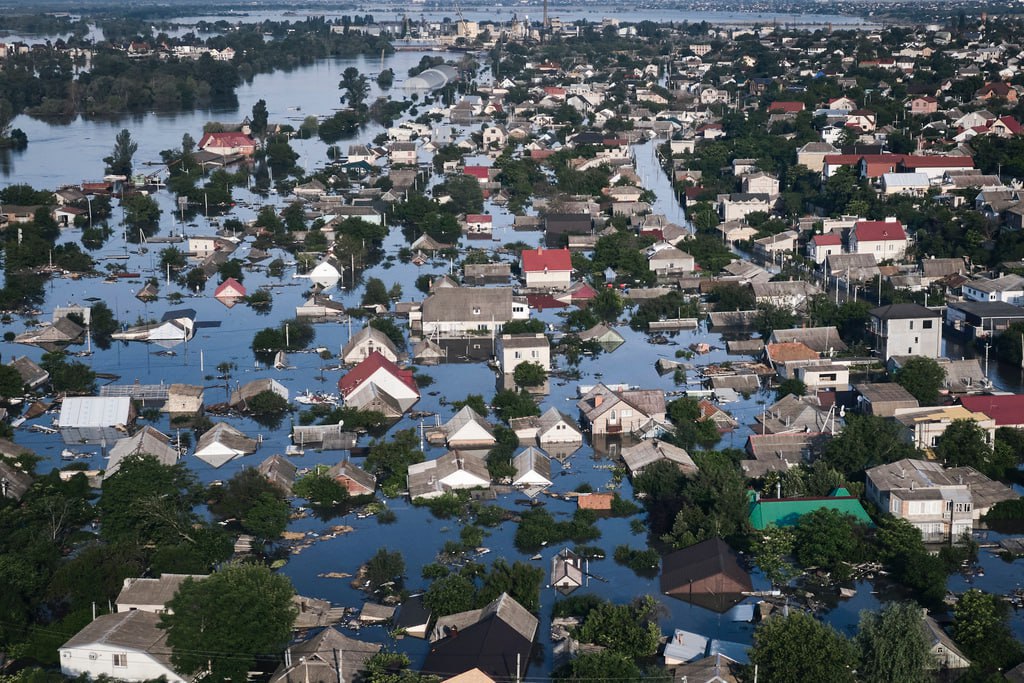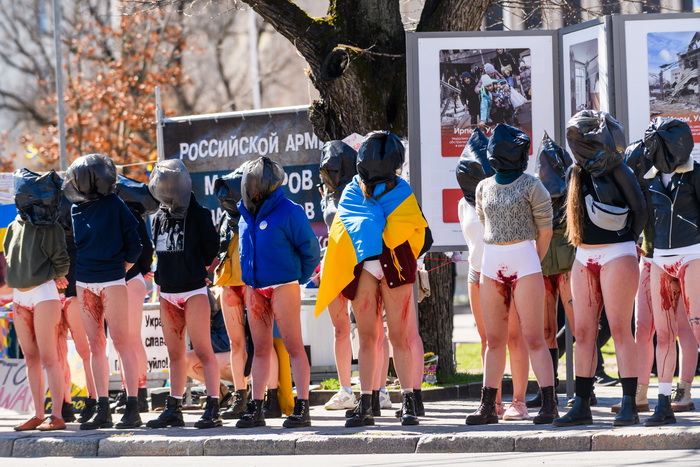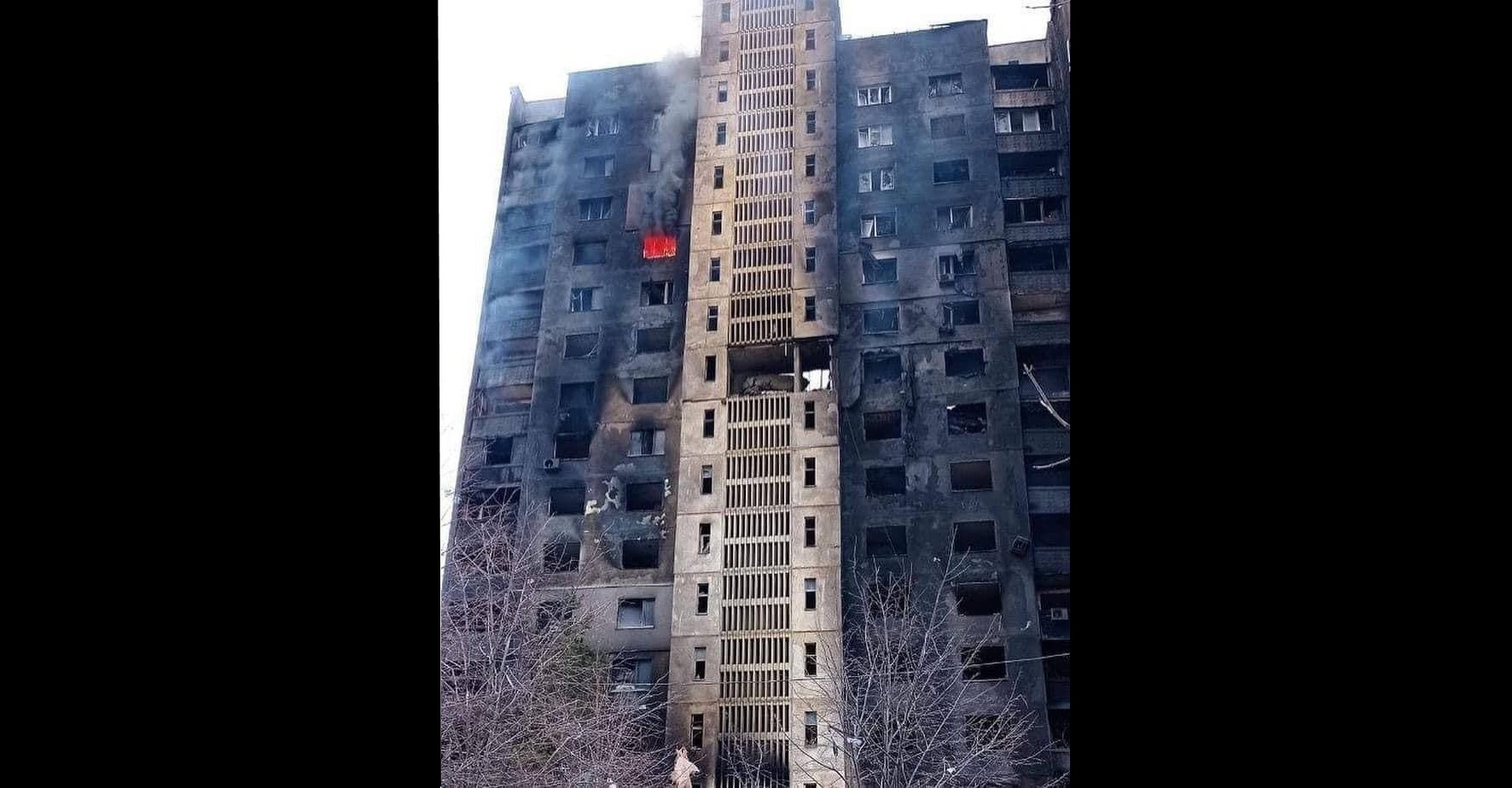Since the very first days of Russia's full-fledged war against Ukraine, renowned Ukrainian and international experts started raising questions about bringing the perpetrators to accountability.
It quickly became clear that although the well-established system of transnational justice -- developed and put in place after World War II -- could respond to genocide, war crimes, and crimes against humanity committed in Ukraine, there was still a gap.
The crime of aggression -- or crime against peace -- was left out.
The crime of aggression - the "mother of crimes" - is a stand-alone crime under international law, and is different from war crimes, crimes against humanity, and genocide. It is the highest state military and political leadership, in other words - persons "in a position effectively to exercise control over or to direct the political or military action of a State," who is responsible for this crime.
None of the existing international judicial institutions has jurisdiction over the crime of aggression against Ukraine.
Aggression lays the foundation for all other atrocities and, most importantly, challenges the international world order and destroys pillars of the democratic society.
And yet, in the midst of the cruelest and most devastating war seen by Europe since 1945, experts discover that none of the existing international judicial institutions has jurisdiction over the crime of aggression against Ukraine.
The International Criminal Court (ICC) which was specifically established to review international crimes, cannot address it either due to limitations of its mandate: neither Ukraine nor Russia ratified the ICC’s Statute, and the United Nations Security Council which could "activate" the ICC's jurisdiction, is itself disabled by Russia's veto.
Thus, for the time being, the cornerstone of international crimes remains in limbo.
A Special Tribunal for the Crime of Aggression against Ukraine: the only way to bring Russia to justic
From the legal perspective, there is only one logical and right way to proceed, which is to establish an ad hoc
international court that would specifically and exclusively review the crime of aggression - the Special Tribunal for the Crime of Aggression against Ukraine.
International tribunals are not a novelty. History knows many of them:
- the Nuremberg and Tokyo Tribunals;
- the International Criminal Tribunals for the former Yugoslavia and Rwanda;
- the International Residual Mechanism for Criminal Tribunals;
- the Special Tribunal for Lebanon;
- the Special Court in Sierra Leone;
- and many others.
Consequently and obviously, the Government of Ukraine urges the world, in particular individual states and international organizations, to support the establishment of the ad hoc Special Tribunal for the Crime of Aggression against Ukraine.
If at the beginning of the war this idea seemed a bit unrealistic, now it has the support and blessing of all major international intergovernmental organizations (see the Resolutions of the General Assembly of the Council of Europe 2433 (2022) and 2436 (2022), of the European Parliament 2022/2655 (RSP), NATO Parliamentary Assembly 111 SESP 22 E rev.1, OSCE Parliamentary Assembly “Resolution
on the Russian Federation’s War of Aggression against Ukraine and its People, and Its Threat to Security Across the OSCE Region," and others) and individual governments (1, 2).
The civilized world understands and comes to an agreement that the Tribunal will strip President Putin of much of his support and, most importantly, will move the question of accountability of the highest military and political leadership of the Russian Federation from the political to the legal realm. From the moment of the Tribunal’s establishment, no diplomatic negotiations or threats from the Russian Federation will be able to stand in the way of the rule of law.
It is understandable why certain countries - we could guess them by now - do not support the establishment of the tribunal. The Ukrainian legal community is also mindful of the fact that our case is different, at least for the following reasons:
- unlike, for example, genocide or terrorism, the crime against peace has not been prosecuted since the Nuremberg of Tokyo Tribunals. As a result, there are no clear algorithms of action ready and the world has to learn on the fly;
- we are talking about the crime of aggression [read - brutal war] that still continues, thus the Tribunal might and will be perceived as additional gas in the flame that is already burning well;
- the Tribunal would mean a very strong response not only to the biggest country in the world that is a member of the UN Security Council but also has nuclear weapons.
However, there is hope that we could be courageous enough to openly discuss the above factors, and also how the war in Ukraine differs from the presence of military contingents from other countries abroad, both at present and in the past.
A Special Tribunal is not about only Ukraine
On 21 February 2022, a few days before the full-fledged invasion by the Russian Federation of Ukraine, David Leonhardt from the New York Times analyzed the difference between the potential war between Ukraine and Russia and other military conflicts since World War II. The summary of the Article can be conveyed through one phrase:
"A Russian invasion of Ukraine would look like the kind of war that has been largely absent in the past 80 years and that was once common. It would involve a powerful nation setting out to expand its regional dominance by taking over a neighbor."
It is exactly for this reason that the establishment of the Tribunal is not only about Ukraine. The danger of disregarding the crime of aggression against Ukraine is in establishing a legal precedent. In the future, totalitarian regimes might be able to successfully and confidently repeat the experience of the Russian Federation, thus proving that physical force is a primary driver of change. The lack of reaction now will render the system of international law weak: democratic and less militarized countries (Ukraine undoubtedly will be one of them) will become irreversibly skeptical about international law and its architecture which turned its blind eye towards aggression.
Tribunal for Putin: a guide to holding Russia’s leadership accountable for war crimes in Ukraine
And this is not just a hypothetical assumption. Recent studies warn us that for years the level of democracy has been decreasing in the world, while totalitarian regimes raise their heads up. The 2022 research of the Freedom House informs us “of 16 consecutive years of decline in global freedom.”
The same research leads to a conclusion with which we fully concur:
“It is now impossible to ignore the damage to democracy’s foundations and reputation. The regimes of China, Russia, and other authoritarian countries have gained enormous power in the international system, and freer countries have seen their established norms challenged and fractured. The current state of global freedom should raise alarm among all who value their own rights and those of their fellow human beings. To reverse the decline, democratic governments need to strengthen domestic laws and institutions while taking bold, coordinated action to support the struggle for democracy around the world […] Only global solidarity among democracy’s defenders can successfully counter the combined aggression of its adversaries.”
The world is choosing its future now. We are asking to once again choose the rule of law, freedom, and democracy.
The position of the Ukrainian Bar Association on the establishment of the Special Tribunal is available via the link.

Inna Liniova is Executive Director of the Ukrainian Bar Association.
Related:
- How Ukraine is preparing a Tribunal for Putin
- Tribunal for Putin: a guide to holding Russia’s leadership accountable for war crimes in Ukraine
- This is what genocide looks like: Russian torture chambers in Kharkiv Oblast
- Kids starved as Russians devoured the villagers’ chickens, pigs, and dogs: war crimes near Chernhiv
- “This is ordinary genocide in the 21st century.” Ukrainian police chief on Russian war crimes
- Ukraine calls on world to create special tribunal for Russia’s crimes
- Netherlands supported creation of special tribunal to investigate Russian crimes committed in Ukraine
- Lithuania, Latvia and Estonia call to create a tribunal against Russian leadership





